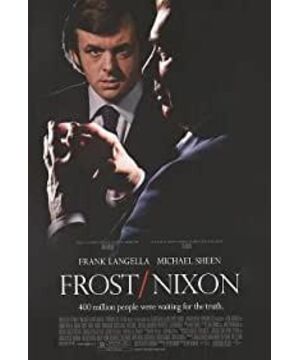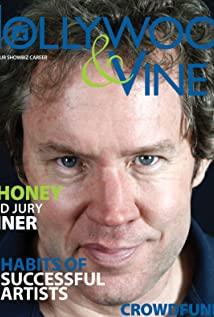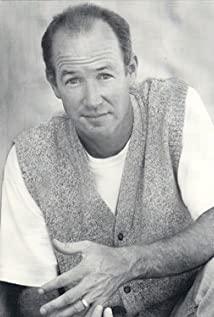I think that the picture has some kind of meaning like a tribute to a dream—I often experience that feeling, as if you are in a dream, and soberly knowing that you are having a disgusting dream—you know that It's a terrible nightmare, but you can't wake yourself up.
There have been enough glorious words to praise this greatest interview in the history of human journalism, not one of them. But you know my personality, I never need to look at anything with the ideas that most people can easily think of.
So this story in my eyes is not the great struggle of a journalist, nor the experience of how two equally powerful souls struggled and distinguished between the winners and losers. Because there are no two, this story has only one soul from beginning to end. ——Even if it is divided into two halves, in order to make a story beautiful.
In essence, Foster and Nixon are actually two souls in one body, which is clearly implied in the dialogue between the last two of the film.
Nixon: "Mr. Foster, maybe I chose the wrong profession for both. You should be president, and I should be a reporter."
After hearing this, Foster was a gentleman with revenge for ten years. Nixon scolded sissy leather shoes in front of him and gave them to Nixon.
Shoes are an interesting symbol-it symbolizes occupation. At the same time, it is like a bridge in a dream—according to Freud's interpretation—a symbol that leads to a fulfilled life.
We can only take our own steps to find the way to perfect the soul, in the final analysis, because we are all the same person.
Before the last interview began, Nixon was drunk, so he called Fosker.
It is said that the slight drunkenness brought by drunkenness is similar to the illusion that the soul is out of the body, which is the same state of mind as the confession of a believer.
The theme of confession is "confession," telling the secrets that you couldn't tell in the depths of your heart. This is the only way to calm your soul.
All confessions are and can only be confessions.
So in the last interview, Foster changed, became aggressive and strong, and Nixon also changed, became dull, old, but real—the feeling was when he said the phrase “I let My people are disappointed" and reached the top with tears in his eyes.
This is the most moral part of this story. This moral is not the great victory of the journalist seeking the truth, but the two souls tearing off their masks through dialogue. He was originally good at ingratiating, flattering, majestic and sharp in his bones; but he was irritable and irritable all his life, but his heart was slow and sad.
This is the truth of the two originally one souls, just like the phone call after drunkenness: "I am the same person in the first place, but there can only be one victor in the end."
This may be common to all souls in the world. The truth, looking back at the name of the movie "Foske Dialogue with Nixon", I found that no matter what the two names are, we can even switch them to any two people in the world, but the only constant is "dialogue"— —The cost of inner confession that allows us to live within the protection of the shell is getting higher and higher. In order to find such a way, we contacted sponsors, attended the press conference, promoted hype in the major media, and sat in front of the spotlight. With dozens of cameras, it can cost tens of thousands of dollars a minute.
The biggest tragedy in modern society is that the more expensive it is, the more popular this method is, and when we lack this specific method, we don't even know how to confess our soul to the world.
View more about Frost/Nixon reviews











